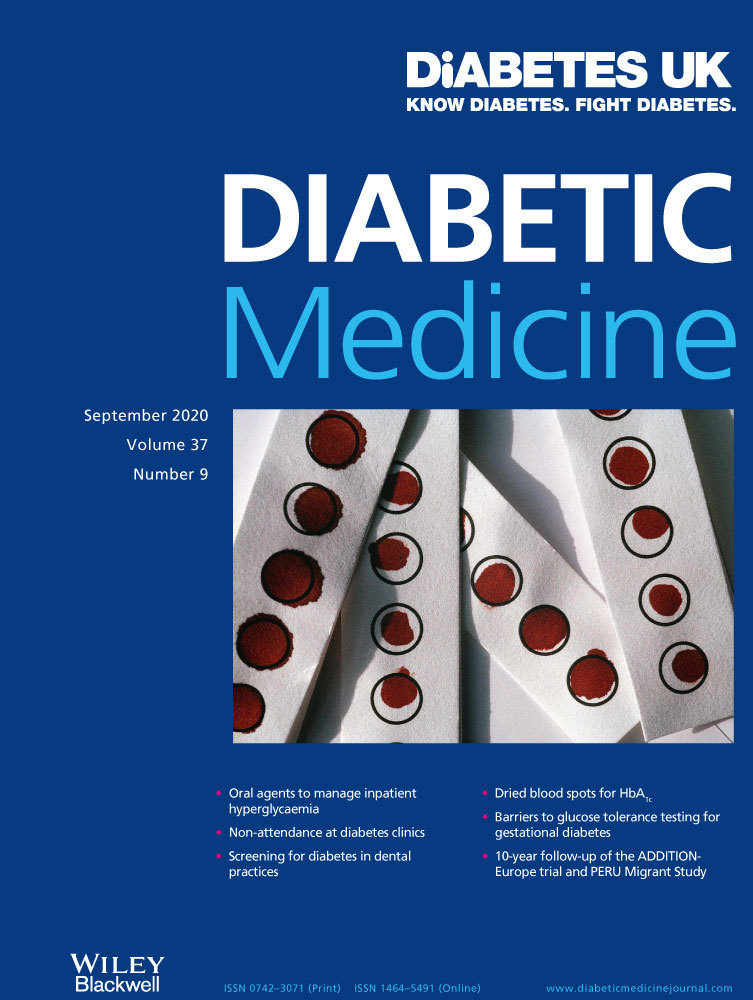Need for less tight glucose control in early pregnancy after embryogenesis due to high risk of maternal hypoglycaemia in women with pre-existing diabetes can be compensated by good control in late pregnancy
Abstract
Aim
Poor glucose control is associated with adverse outcomes in pregnancies with pre-existing diabetes. However, strict glucose control increases the risk of severe hypoglycaemia, particularly in the first trimester. Therefore, we aimed to investigate whether less tight glucose control in the first trimester determines adverse outcomes or can be compensated for by good control in late pregnancy.
Methods
Retrospective data were collected from 517 singleton pregnancies complicated by pre-existing diabetes delivering between 2010 and 2017. Three hundred and thirty-six pregnancies fulfilled the inclusion criteria of having available HbA1c values either pre-conception or in the first trimester (65% type 1 diabetes, 35% type 2 diabetes).
Results
Higher HbA1c values in the first trimester were associated with increasing rates of large for gestational age (LGA) neonates, preterm delivery or neonatal intensive care unit admissions. Multiple regression analysis demonstrated third trimester HbA1c, type 1 diabetes, multiparity and excess weight gain, but not first trimester HbA1c, to be independently predictive for LGA. Pre-eclampsia and third trimester HbA1c increased the risk for preterm delivery. If HbA1c was ≤ 42 mmol/mol (6.0%) in the third trimester, rates of adverse outcomes were not significantly higher even if HbA1c targets of ≤ 48 mmol/mol (6.5%) had not been met in the first trimester. Good first trimester glucose control did not modify the rates of adverse outcomes if HbA1c was > 42 mmol/mol (6.0%) in the third trimester.
Conclusions
Less tight glycaemic control, for example due to high frequency of severe hypoglycaemia in the first trimester, does not lead to increased adverse neonatal events if followed by tight control in the third trimester. Besides glycaemic control, excess weight gain is a modifiable predictor of adverse outcome.




